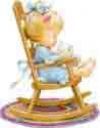|
ESL Forum:
Techniques and methods
in Language Teaching
Games, activities
and teaching ideas
Grammar and
Linguistics
Teaching material
Concerning
worksheets
Concerning
powerpoints
Concerning online
exercises
Make suggestions,
report errors
Ask for help
Message board
|
ESL forum >
Ask for help > Indefinite article "a" pronunciation!!!! Please help me!! : )
Indefinite article "a" pronunciation!!!! Please help me!! : )
|

Rafinha83

|
Indefinite article "a" pronunciation!!!! Please help me!! : )
|
|
Hi everyone!!! I need your help!
Some days ago I was listening to a pronunciation practice Cd and the topic was objects!! They were introducing the objects using the indefinite article (a/an) and depending on the object I notice that the pronunciation of the article changed for example:
1) A book, A notepad, A pen ( the article being pronounced- uh)
2) A pencil, A paper clip, A rubber band ( the article being pronounced- ey)
Is there any reason for that??? So far I couldn �t find any good explanation!!! Could you help me,please???   Thanks a lot!!! |
25 Jan 2010
|
|
|
|
|
|

lshorton99

|
Generally I think �uh � is more common in speech - sentences such as �I �ve got a pencil � would usually be pronounced �uh �. I would imagine �ey � to be more common when it is not part of a sentence. �uh � nwould be one of the features of connected speech. A lot of the pronunciation issues would depend on the context in which the word was used - what sounds came before and after it.
However, there is also the possibility of regional variations!
|
26 Jan 2010
|
|
|

melahel7

|
|
You answered well lshorton99. |
26 Jan 2010
|
|
|
|
|

Jayho

|
|
Hi Rafinah83
Both forms are commonly used in Australian English however I have read that �ey � is the more common form of pronunciation in British English and �uh � (or schwa) is the more common form in American English.
As far as an explanation goes I don �t have one (we mainly use the schwa sound and that �s what Oz teachers generally teach) but these links might shed some light for you:
You can google to find more info - there are heaps of links.
Cheers
Jayho |
26 Jan 2010
|
|
|

Olindalima ( F )

|
Hi rafinha and Hi jayho
I would say it upside down ( smile ).
I was taught, ( British English ) what Rafinha translates as "uh" ( I do understand it , Rafinha, )this is our Portuguese / Brazilian - " a " , like this : " A menina... it is the same sound.
I had a few American teachers and they would always say what Rafinha calls " ey".
And American teachers would make us spell the alphabet to prove that there was no "uh" in the alphabet, the first letter is "ey".
Lol, smile - different pronounce is what makes a language alive.
There are so many different things, I mean pronounce in Portuguese language, and we can not say this one is correct and the other one is wrong.
Long live diversity.
hugs
linda
|
26 Jan 2010
|
|
|

lshorton99

|
|
I agree with Olindalima - the schwa �a � is definitely British English.
|
26 Jan 2010
|
|
|

Zora

|
Hey there,
Maybe I have been teaching English for too many years but quite truthfully... I say "ah" not "uh"... and "ey" when I want to emphasize the object I am taking about... or maybe, the "ah" is just a Canadian thing.
When I started re-working as an English teacher. All us natives were asked to slow down and enunciate properly so the students would pick up our words easier. I am not sure if all that is why I prefer "ah" to "uh� or "ey" or if I said "ah" before then.. lol... the "ey" is almost always used when I want to emphasize that it is "a" whatever and not something else or a determiner like "the"... *shrugs* but yeah, not too sure about that... the "uh" sounds slightly more "American" to me and not British.
|
26 Jan 2010
|
|
|

liveu

|
|
I find Zora �s explanation the most suitable. This is what happens in the words with the article �a � - if you pronounce it separately from the word itself, it turns into �ey �. This could be the only explanation, as I have noticed. Sometimes a becomes stressed for emphasis, which also makes it pronounced as �ey �. Live and learn! |
26 Jan 2010
|
|
|

douglas

|
|
I tend to use "uh" (as in "butter")a lot, but I recommend to my students that they use "ey" (as in "hay"). In most cases "ey" sounds okay, but in many cases "uh" doesn �t. |
26 Jan 2010
|
|
1
2
Next >
|

















